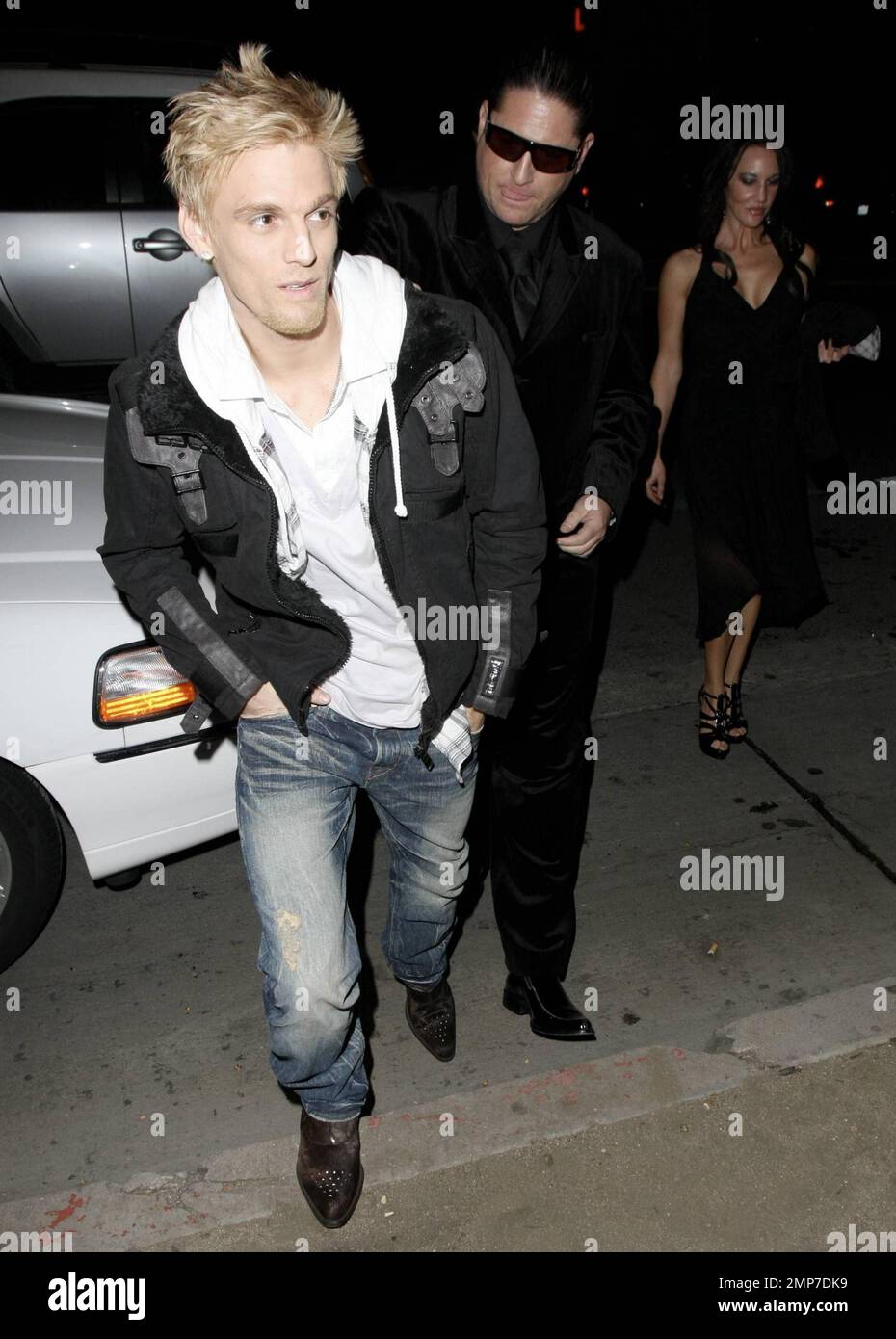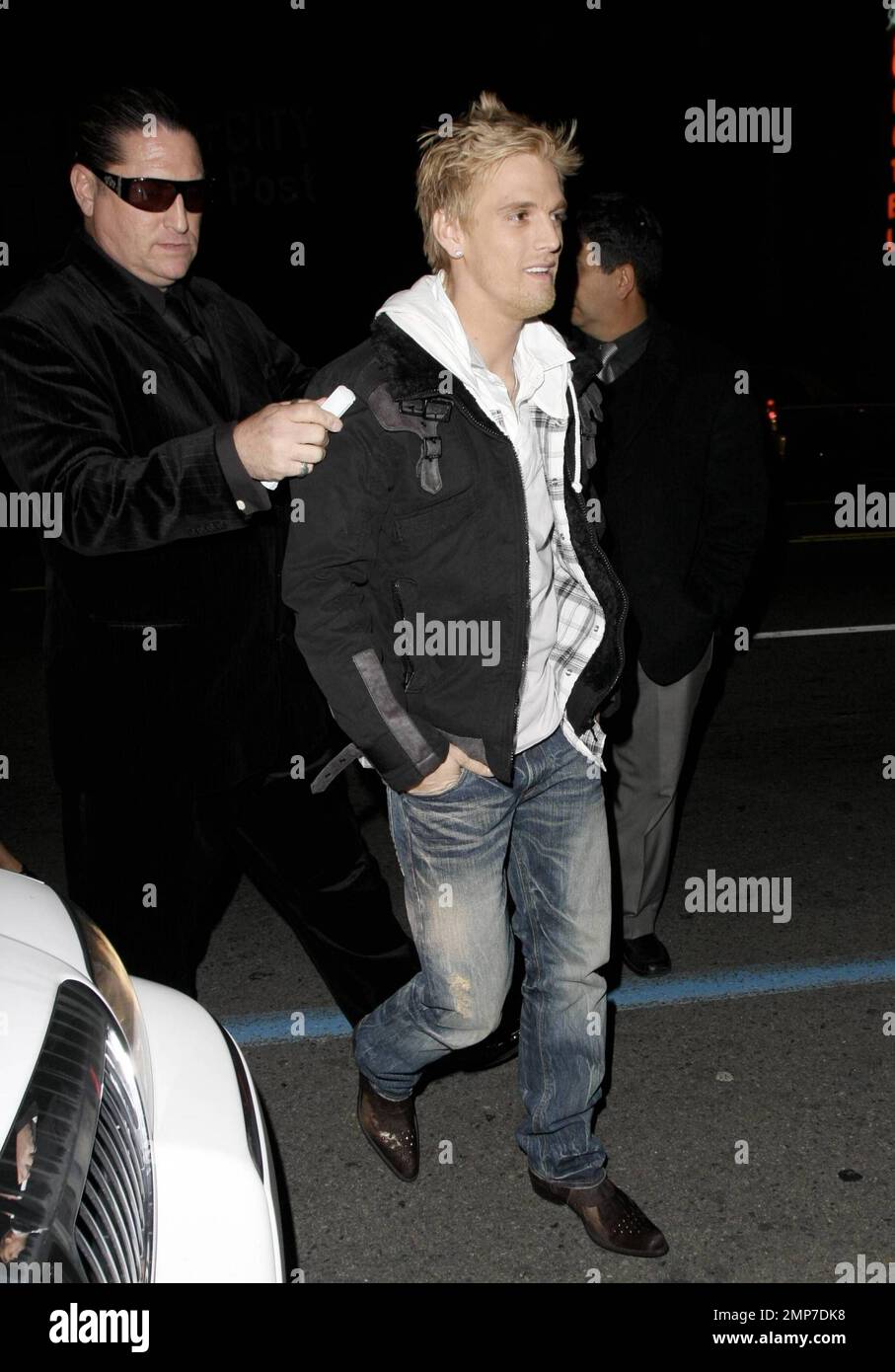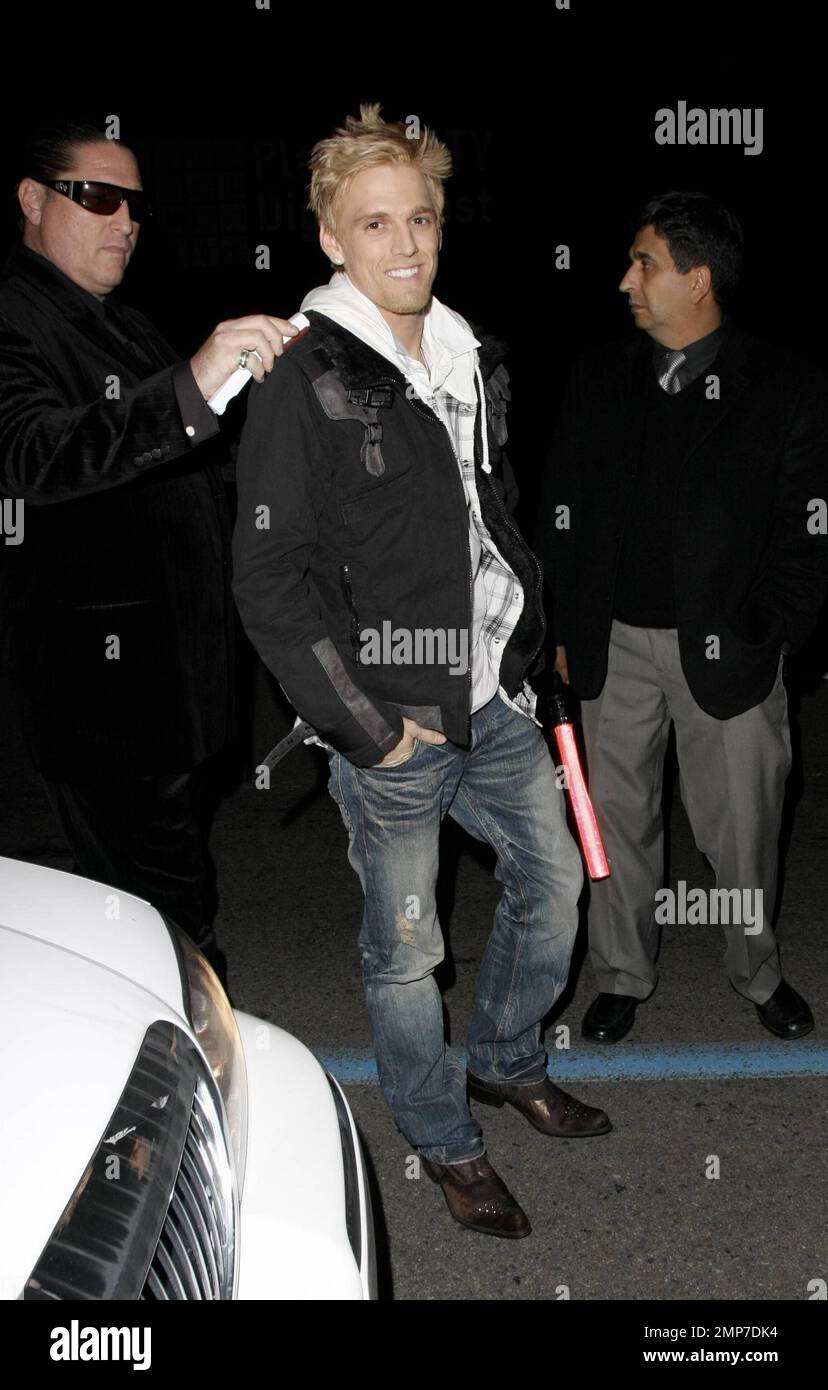All About Aaron Carter & Diddy: Music, Mentorship & More!
Were Aaron Carter and Diddy an unlikely pairing that somehow made perfect sense in the early 2000s? Absolutely, and their combined influence permeated the music and entertainment landscape more than many realize.
The name "Aaron Carter Diddy" encapsulates a unique intersection of pop and hip-hop, bridging the gap between a teen idol and a music mogul. Aaron Carter, the younger brother of Backstreet Boy Nick Carter, captivated a generation with his infectious pop tunes and boyish charm. Sean Combs, known by many monikers including Diddy, Puff Daddy, and P. Diddy, revolutionized hip-hop with his Bad Boy Records empire and astute business savvy. Their paths crossed at a pivotal time, leaving a lasting impression on both their careers and the broader cultural narrative.
| Name | Birth Date | Birth Place | Occupation |
|---|---|---|---|
| Aaron Carter | December 7, 1987 | Tampa, Florida, U.S. | Singer, rapper, actor, and dancer |
| Sean Combs (Diddy) | November 4, 1969 | Harlem, New York City, U.S. | Rapper, singer, songwriter, record producer, and entrepreneur |
For more information on Sean Combs, visit his page on Bad Boy Records.
- Exploring Johnny Galecki Bio Career More About Him
- Gladiators Enduring Power Russell Crowes Epic Performance
Connection between Aaron Carter and Diddy:
The story of Aaron Carter and Diddy isnt just about two artists existing in the same industry; its a testament to the power of collaboration and mentorship. Diddy, a force to be reckoned with in the hip-hop world, recognized something special in the young pop star. This mutual respect led to collaborative efforts that defied genre boundaries and amplified their individual reaches.
Aaron Carter and Diddy's partnership wasn't just a fleeting moment; it was a strategic alliance that combined Carter's widespread appeal with Diddy's clout. They joined forces on multiple projects, with Carter making a memorable appearance in Diddy's "I Need a Girl (Part 2)" music video in 2001. This collaboration broadened Carter's exposure and showcased his versatility beyond the typical teen pop confines. A year later, the duo took the stage at the MTV Video Music Awards in 2002, solidifying their professional connection. Diddy's involvement extended beyond mere collaborations; he served as a valuable mentor, offering guidance and support to Carter, who was navigating the complexities of fame at a young age.
- Discover The Secrets Of The 99 Cent Store Is It Worth It
- Breaking Traci Braxton Husband Net Worth Revealed The Facts
Aaron Carter's Music Career:
The journey of Aaron Carter in the music industry began remarkably early. In 1997, he released his debut album, marking the beginning of his rise to prominence. His popularity soared in the late 1990s and early 2000s, driven by catchy singles like "Crush on You" and "I Want Candy." These songs quickly became anthems for a generation of young fans, cementing Carter's status as a teen idol. His career continued to evolve, with his most recent album being released in 2018, showing his continued dedication to music.
Diddy's Business Ventures:
Sean Combs, more famously known as Diddy, stands as a paragon of entrepreneurial success in the music industry and beyond. His ventures extend far beyond the realm of music, making him a multifaceted mogul. At the heart of his empire is Bad Boy Records, a label that has launched and propelled numerous hip-hop artists to stardom. Beyond music, Diddy has made significant strides in the fashion world with his Sean John clothing line, known for its blend of streetwear and high fashion. His influence also reaches the spirits industry with Ciroc vodka, which he helped transform into a leading brand. He has also ventured into film and television production, showcasing his diverse range of talents and business acumen. His ability to build successful brands and identify opportunities has cemented his legacy as a formidable force in the business world.
The Impact of Aaron Carter and Diddy:
Aaron Carter and Diddy both left lasting marks on the music industry and popular culture, albeit through different avenues. Carter became an iconic figure for young fans in the late 1990s and early 2000s, his music remaining a cherished part of many playlists. Diddy, celebrated as one of the most successful hip-hop artists of all time, has had significant business achievements that have elevated him to a position of great wealth and influence. Their respective contributions highlight the diversity and richness of the music industry.
Aaron Carter Diddy:
The combined impact of Aaron Carter and Diddy resonates through the entertainment industry, where their contributions in music, fashion, and business have created a lasting legacy. Their influence underscores their significant presence and achievements.
- Musical Collaboration: The joint efforts of Aaron Carter and Diddy, including music videos and live performances, represent their collaborative spirit and mutual artistic respect.
- Mentorship and Support: Diddy's role as a mentor to Aaron Carter highlights his commitment to guiding and nurturing young talent in the entertainment industry.
- Pop Icon: Aaron Carter's status as a teen pop icon in the late 1990s and early 2000s underscores his significant impact on youth culture and the music industry.
- Hip-Hop Mogul: Diddy's success with Bad Boy Records has established him as a transformative figure in hip-hop, showcasing his ability to discover and promote top talent.
- Fashion and Business: Diddy's expansion into fashion, clothing, and spirits demonstrates his versatile entrepreneurial skills and his ability to create successful brands.
- Cultural Impact: The widespread influence of both Aaron Carter and Diddy on fashion, music, and youth culture confirms their status as influential figures who have shaped popular culture.
The varied talents and contributions of Aaron Carter and Diddy demonstrate the dynamic nature of the entertainment industry, where artists from diverse backgrounds unite to produce impactful work. Their collaboration and mutual support exemplify the synergy that can be achieved when artists come together, transcending genres and backgrounds.
Personal details and Bio Data of Aaron Carter Diddy:
| Name | Birth Date | Birth Place | Occupation |
|---|---|---|---|
| Aaron Carter | December 7, 1987 | Tampa, Florida, U.S. | Singer, rapper, actor, and dancer |
| Sean Combs (Diddy) | November 4, 1969 | Harlem, New York City, U.S. | Rapper, singer, songwriter, record producer, and entrepreneur |
Musical Collaboration:
The impact of the musical collaboration between Aaron Carter and Diddy cannot be overstated, playing a pivotal role in their respective careers and leaving a lasting mark on the music industry. Their joint ventures not only highlighted their diverse talents but also bolstered their recognition and success.
A standout example of their partnership is Aaron Carter's appearance in the music video for Diddy's track, "I Need a Girl (Part 2)," which dropped in 2001. Carter shared the screen with Diddy and other artists, showcasing his dynamic dance skills and stage presence. This collaboration introduced Carter to a broader audience and solidified his position as an emerging star in the pop scene.
Another significant moment in their collaborative history was their joint performance at the 2002 MTV Video Music Awards. Carter and Diddy shared the stage, delivering a medley of Carter's well-known hits, including "I Want Candy" and "Oh Aaron." The performance amplified Carter's image as a multifaceted performer and demonstrated the mutual respect and support between him and Diddy.
Their musical collaboration extended beyond these high-profile events. They worked together on other songs and projects, exchanging creative ideas and supporting each others musical endeavors. This ongoing collaboration showcased their commitment to each other's artistic growth and mutual success.
In short, the musical partnership between Aaron Carter and Diddy proved to be mutually beneficial, contributing to their individual accomplishments and enhancing the music industry as a whole. Their joint projects displayed their varied skills, exposed Carter to a wider fanbase, and cemented their status as key figures in the entertainment world.
Mentorship and Support:
Diddys mentorship and support were instrumental in shaping Aaron Carters career and fostering his personal development. Diddy's guidance was crucial in helping Carter navigate the complexities of the entertainment world and realize his full potential.
One of the most significant instances of Diddys mentorship was his early involvement in Carters music career. Diddy recognized Carters raw talent and potential, offering him opportunities to collaborate on projects and perform on significant stages. This support not only boosted Carter's confidence but also established him as a promising star in the pop music arena.
Besides offering musical guidance, Diddy also mentored Carter on a personal level. He provided advice and support on a range of topics, including financial management, career planning, and personal relationships. This mentoring helped Carter develop into a well-rounded individual, capable of making informed decisions throughout his career.
The support and mentorship Diddy provided were invaluable to Aaron Carter. His guidance helped Carter hone his talents, overcome challenges in the entertainment industry, and grow personally. This relationship underscores the importance of supportive networks in the entertainment world and beyond.
Pop Icon:
Aaron Carters rise to teen pop stardom in the late 1990s and early 2000s significantly shaped his career and the broader music industry. His popularity directly influenced his connection with Diddy and their subsequent collaborations.
- Mass Appeal: Carters teen pop icon status gave him widespread recognition and a large fan base, making him an attractive collaborator for Diddy, who sought to expand his reach into the pop music market. This status enhanced Carter's visibility and appeal.
- Crossover Potential: Carters appeal to both teen and adult audiences made him a versatile artist who could bridge different musical genres. This crossover potential was invaluable for Diddy, who was looking to diversify his musical portfolio and attract a broader audience.
- Marketing Synergy: Carters image as a teen heartthrob, combined with Diddys Bad Boy Records, created a marketing synergy that resonated with a wide range of consumers. This synergy boosted their market presence and appeal.
- Cultural Impact: Carters teen pop icon status reflected the cultural zeitgeist of the late 1990s and early 2000s, characterized by youth culture and celebrity. This cultural impact aligned well with Diddys brand, which was deeply rooted in youth culture and urban fashion, enhancing their combined influence.
To summarize, Aaron Carter's rise as a teen pop icon was crucial in his connection with Diddy and their resulting collaborations. His broad appeal, crossover potential, marketing synergy, and cultural influence made him a valuable asset to Diddys Bad Boy Records, shaping their musical partnership.
Hip-Hop Mogul:
Sean Combs, known as Diddy or Puff Daddy, is a key figure in hip-hop and beyond. His success as a hip-hop mogul is significantly connected to his relationship with Aaron Carter.
Diddys Bad Boy Records played a pivotal role in shaping Aaron Carters career. In the late 1990s and early 2000s, Bad Boy Records was a leading hip-hop label, known for its talented artists and innovative sound. Diddy's mentorship and support were instrumental in Carter gaining recognition and establishing himself as a pop icon.
Additionally, Diddy's entrepreneurial ventures, such as his clothing line Sean John and Ciroc vodka, provided Carter with valuable insights into the business aspects of the entertainment industry. Carter has acknowledged that Diddy taught him critical lessons about branding, marketing, and financial management.
In short, Diddy's achievements as a hip-hop mogul and his Bad Boy Records label were essential to Aaron Carters career development. Diddy's mentorship, support, and business acumen helped Carter navigate the complexities of the entertainment industry and reach his full potential.
Fashion and Business:
Diddys expansion into fashion and business significantly influenced his relationship with Aaron Carter and the development of Carters career.
Diddys ventures in fashion, particularly through his Sean John clothing line, gave Carter valuable insights into the fashion industry and the importance of branding. Carter often wore Sean John clothing and accessories, demonstrating his alignment with Diddys fashion sense and business expertise.
Additionally, Diddys success in the spirits industry with Ciroc vodka provided Carter with a blueprint for building a successful business outside of music. Carter has expressed admiration for Diddys entrepreneurial spirit and has sought his advice on business ventures and investments.
In conclusion, Diddys expansion into fashion and business has been a significant asset to Aaron Carter, offering him mentorship, support, and insights into the business aspects of the entertainment industry.
Cultural Impact:
The cultural impact of Aaron Carter and Diddy is undeniable. Both artists have shaped popular culture through their music, fashion, and overall persona, influencing the tastes and trends of millions worldwide.
Aaron Carter's rise to fame as a teen pop icon in the late 1990s and early 2000s significantly impacted youth culture. His catchy songs and energetic performances resonated with young audiences, and his fashion sense and hairstyles were widely imitated. Carter's influence extended beyond music, as he also appeared in films and television shows, solidifying his status as a pop culture icon.
Diddy, on the other hand, has profoundly impacted hip-hop culture and beyond. As a successful rapper, producer, and entrepreneur, Diddy has helped shape the sound and style of hip-hop music. His Bad Boy Records label has been home to some of the biggest names in hip-hop, and his fashion line, Sean John, has become a global brand. Diddy's influence extends to popular culture as a whole, as he has been featured in films, television shows, and commercials.
The cultural impact of Aaron Carter and Diddy is evident in the way they have influenced fashion, music, and youth culture. Their unique styles and personalities have resonated with millions worldwide, and their contributions to popular culture continue to shape the tastes and trends of today. Their influence remains a vibrant part of contemporary entertainment.
Frequently Asked Questions about Aaron Carter and Diddy:
This section addresses common questions and misconceptions surrounding Aaron Carter and Diddy, providing clear and informative answers.
Question 1: What is the nature of the relationship between Aaron Carter and Diddy?Aaron Carter and Diddy share a close personal and professional bond. Diddy has been a mentor and steadfast supporter of Carters career, providing both guidance and counsel. Moreover, they have engaged in collaborative efforts across diverse musical projects, including music videos and live stage performances.
Question 2: How did Aaron Carter's association with Diddy impact his career?The alliance between Aaron Carter and Diddy was significantly advantageous for Carter's career. Diddy's mentoring and encouragement facilitated Carter in gaining considerable recognition and in establishing himself as a prominent pop figure. Carter also benefited from Diddy's industry insight and entrepreneurial endeavors, obtaining valuable knowledge in the fashion and spirits sectors.
In general, the partnership between Aaron Carter and Diddy has been highly advantageous, significantly enhancing the achievements of both artists. Their combined efforts have underscored the dynamic and symbiotic nature of collaborations within the music industry.
- Unlock The Connection Park Hyung Sik And Park Bo Youngs Story
- Discover Who Is The Most Successful Shark Tank Investor Mr Wonderful

Aaron Carter arrives at Sean "P Diddy" Combs' Grammy afterparty at

P diddy white party hires stock photography and images Alamy

Aaron Carter arrives at Sean "P Diddy" Combs' Grammy afterparty at